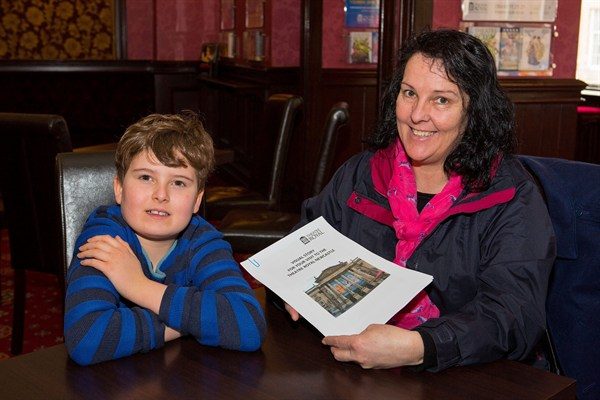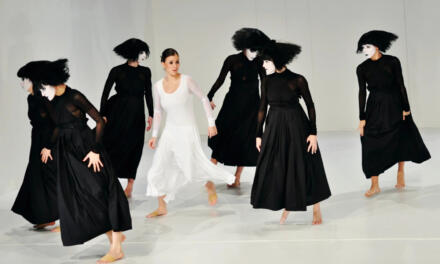I work for the National Autistic Society as their Autism Access Specialist. While this may seem like a mouthful, what I do is actually very simple. I have the privilege of working with theatres and live performance venues across the UK to support them in holding autism-friendly performances of their shows. I’ve had the honor of working with some of the West End’s best-loved productions, as well as regional shows with smaller audiences but just as much creative strength. It may surprise you that I would describe this as a “simple” task–indeed, it surprises most of the theatres I work with when they realize just how simple it can be! But just because it’s simple, that doesn’t mean its impact is small. The change that you can make as theatre makers by creating a space for autism-friendly performances is huge.
Being in this role is a particular privilege for me because I am autistic. I grew up in a creative household–my dad was an actor, then a scriptwriter (after a small stint in stand-up comedy), and now runs drama festivals across the world. From a young age, my dad took me along to theatres watching shows and regularly finding myself to be the youngest person in the audience. I remember being taken to Shakespeare in Stratford at age 9, and a particularly strong memory at age 12 is of utter confusion as everyone laughed along to the scene in French in The History Boys. Theatre was in my blood, and I’ve never lost that feeling whenever I walk into an auditorium that something magical is about to happen.
It’s easy to think, given the stereotype of autistic people as purely analytical beings, that autistic people would have no desire to experience the world of theatre. I hope I am evidence enough that that simply isn’t the case–and you only need to look to the success of so many shows featuring autistic characters, such as Atypical and The A Word, to know that autistic people engage with the cultural and performing arts just as much as everyone else. However, that doesn’t mean that autistic people have the same access to these worlds as everyone else. The sounds and sights of a theatre, as well as the crowds and that oh-so-important “theatre etiquette,” can make a theatre visit an anxiety-ridden experience for an autistic person–and autistic people and their families can be stopped from going to the theatre for fear of being asked to leave if they aren’t deemed to be following the appropriate conventions.
I’ve worked on many autism-friendly performances in my time at the National Autistic Society, but I never stop getting emotional when I attend every one, as I see autistic people, their parents, siblings, carers, and friends, enjoying theatre with an appreciation I rarely see during any other performance. Everyone in the room, whether they’re quietly watching, dancing around the auditorium, or even just out in the quiet rooms taking a break from the show, gives the same feedback: “I don’t feel like I have to apologize for being myself.” The magic of theatre is never more apparent than in a space like that, and so many of the cast, crew, and theatre staff at the theatres I have worked with tell me on a regular basis how much they love working at autism-friendly performances. As this week is World Autism Awareness Week, it’s a great opportunity to take the first steps towards creating an autism-friendly performance at your theatre.
So what does it take to create this magic for your show? Well, with the right staff understanding, some changes to the physical environment of the theatre and provision of appropriate information, any performance can be made autism-friendly. We at the National Autistic Society have been working on autism-friendly performances for years and are ideally placed to help you make this a reality. I’m always delighted to hear from performances who are interested in finding out more, and you can email me at chris.pike@nas.org.uk. I look forward to welcoming autistic people and their families to your theatre soon.
World Autism Awareness Week runs from March 26–April 2, 2018.

This article was originally published on uktheatre.org. Reposted with permission. Read the original article.
This post was written by the author in their personal capacity.The opinions expressed in this article are the author’s own and do not reflect the view of The Theatre Times, their staff or collaborators.
This post was written by Chris Pike.
The views expressed here belong to the author and do not necessarily reflect our views and opinions.


















